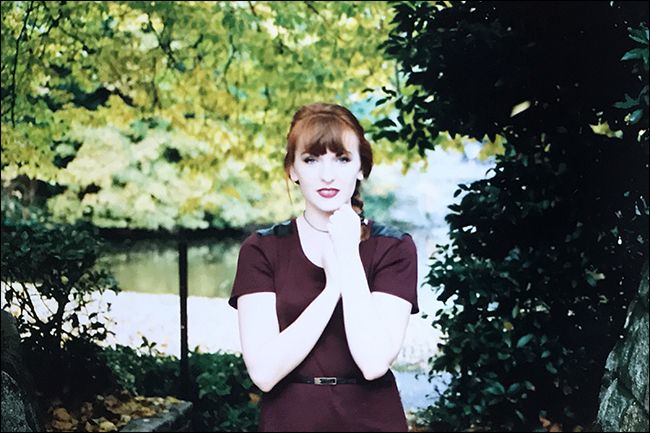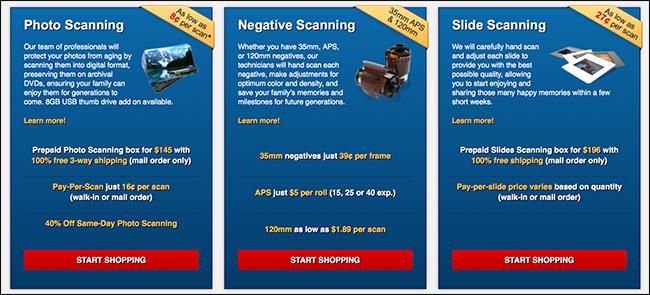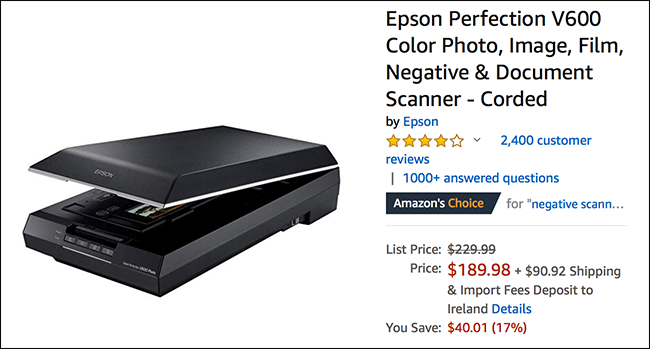I'm a big fan of film photography, but one problem is that physical photos are hard to share. Everyone uses Instagram or Facebook now. Thankfully, it's relatively simple---though not necessarily cheap---to digitize film photos. So, whether you've found a box of old photos in your parent's basement you want to put online, or you just shot a roll of 35mm film last week, here's what to do.
Film photos come in two forms: developed photo prints and the original slides or negatives. Photo prints are easier, and cheaper, to digitize but you'll get better results with the negatives. If you've got both, which you go with is up to you.
If You've Got the Photos
If you've got the photo prints, then things are really simple. You can just take a photo with your phone if you want---but let's look at the better options.
Use Your Scanner
Most modern scanners are more than capable of scanning photos. A good one will probably have a dedicated photo scanning mode. You might need to make some small color adjustments or crop away any border, but it's easy and reliable, if not necessarily a quick option.
If you do go with your scanner, the best thing to do is add all the photos to a catalog app like Apple Photos or Adobe Lightroom. They'll keep them all sorted, and you can also use them to make whatever color fixes are needed.
Use Google Photoscan
Google's Photoscan app, available for iOS and Android, is one of their lesser-known projects. It uses your smartphone's camera to scan and digitize photos by taking a series of images to eliminate glare and then combining them. Here's a photo I scanned with it today.
Photoscan is a clever app that removes glare well and is pretty quick to use. Unfortunately, I found it washed out my images---especially skin tones---a bit too much. I think it's designed for use with older, faded images, rather than the brand new prints with which I was working.
If you just want to scan a handful of photos to upload to social media, it's the way to do it.
Call the Professionals
Scanning and color correcting a big box of photos can be pretty time-consuming. If you've got a lot of images to scan and want to make sure it's done right, the best thing to do is go with a professional service. There are plenty available online, and prices are normally between $0.20 and $0.40 a photo depending on how many images you want to be scanned, the quality you need, and whether or not you want them color corrected.
Before going online, however, I'd recommend checking whether your local camera shop offers photo scanning. Photography is one of those things where going local still makes sense; the shops are staffed by experts who are almost always willing to help and give advice. They'll be able to recommend exactly what your photos need, even if it costs a little more.
If You've Got the Negatives or Slides
With film negatives or slides, things aren't as simple as just running them through your document scanner. The upside is that if you digitize them, the resulting images will most likely be higher quality than if you scanned the original photos.
Get a Negative Scanner
If you have a lot of slides or negatives to scan, the most cost-effective solution might be to buy a negative scanner. While the color might not be the best, the Jumbl 22MP Film and Slide Scanner costs just $80. If getting photos online is more important than having them look perfect, it's a great option. You could also consider going with a high-quality document and photo scanner that can also scan negatives and slides like the Epson Perfection V600 ($190).
Go With the Professionals
As with scanning photo prints, the best option, if you have a huge collection you want to be digitized, is probably to go with the professionals. Expect to pay between about $0.30 and $1.50 per image depending on the format of the photos are, the quality you need, and how many you have. The bulk discounts are not to be sniffed at.
As always, I'd suggest checking out your local camera shop before going with an online service. The staff there will be able to advise you on the best course of action.
Photos only deteriorate over time. If you've got a large collection of old photos, the sooner you digitize them---and back them up---the less likely they are to get ruined by time or mistreatment.




